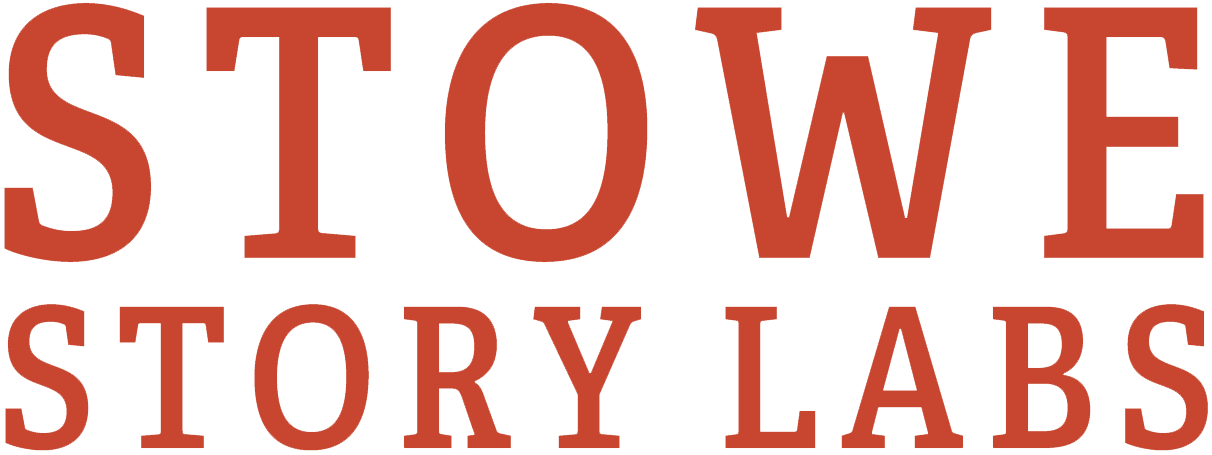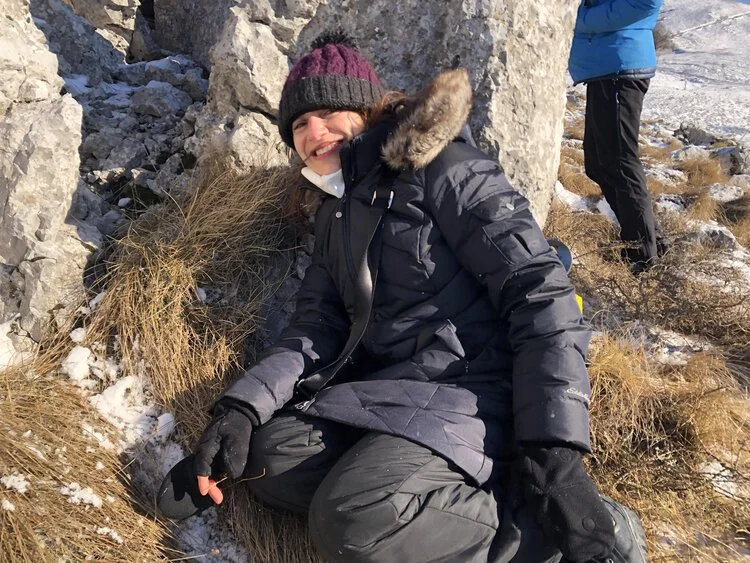Reflecting Reality
A PROFILE OF SCREENWRITER AND HEAD OF DEVELOPMENT AT MAVEN SCREEN MEDIA, JENNY HALPER
By Robert Delaney
Jenny Halper is a wonderful Stowe Story Labs mentor, but first and foremost she is a writer, producer, and Executive Vice President of Development & Production for Maven Screen Media. She has worked on powerful films including The Kids Are All Right (2010), The Whistleblower (2010), Bernie (2011), Still Alice (2015), Freak Show (2017), American Honey (2016), and The Kindergarten Teacher (2018). Jenny is an Athena List winner, an Our Stories Emerging Writer Award winner, a Pushcart Prize nominee, a Sloane Grantee, and her story collection was a finalist for the 2015 St. Lawrence Book Prize.
Maven Screen Media is a private media and entertainment development, production, and advisory company founded in 2020 by Celine Rattray and Trudie Styler. They are dedicated to producing multi-platform film and television content and increasing representation for women in front of and behind the camera. We partner with Maven for one of our fellowships, which is awarded to a top emerging female screenwriter working on a project for television. The fellowship covers the fees to attend the Stowe Narrative Lab and the fellow’s project will be considered for development by Maven.
Jenny has a lifelong love of cinema. “I’ve been wanting to work in film since I was about four years old. I know that sounds crazy, but I was always obsessed with movies and wanted to work with them in one way or another,” she said. She first began working in the film industry as a film critic between her undergraduate studies at Northwestern University and her graduate studies at Emerson College. This work afforded her some amazing opportunities, such as traveling to visit the Narnia sets in New Zealand: “I really loved it. I love getting to interview actors and directors and writers and getting to hear about the behind the scenes process.” But after working in development for numerous production companies, and working as a successful writer and screenwriter herself, she made her way to Maven Screen Media where she now heads the development of their award-winning slate of films and shows.
Jenny reviews a multitude of projects for Maven, and she keeps these words in mind while evaluating potential projects: “I remember interviewing Alexander Payne, and he said so many times, ‘our cinema must reflect our reality.’ That was something that really stuck with me.” This shows with Maven’s incredibly diverse catalogue that spans so many different types of stories. It’s also her understanding of the disparity in the film industry that pushes her to move forward projects of visionary female filmmakers: “I saw a lot of really talented directors, who would make an incredible first film, not get their second film made too. I saw that a lot as a journalist. So it’s what’s happening with these really talented women directors, why aren’t they getting their second movie made? How can we seek them out? How can we help them get their second movie made, because sometimes it’s harder to get a second movie made than a first?”
Jenny has been an incredible mentor for us in the past at our Labs and Retreats, and we are happy she has had such a positive experience at our programs. “It’s been fantastic. They are really open and great. It’s so clear that it’s about the story for them, and let’s make this script the best it could be,” she stated.
As Kendra explains, the development process connects directly to the style of the script. “I think this is a huge reason why the style of this particular script is so dialogue heavy and has such a back and forth. It is very representative of how the idea came to life,” she said.
While developing BEFORE I DISAPPEAR, Kendra and Justin sifted through their familial history, as Justin describes about the overarching theme of the project. “By knowing our history we can begin to know ourselves and that’s how we can begin to heal. It feels like that became the theme of the film but also for us because every time we talked we started diving into our family history,” she said.
The intentions of the script broadened and changed over time, as Kendra explains: “When we first started working on this our intention was to write something for our communities, for the communities that we come from and for the little kid in us that never saw ourselves on screen. Then the pandemic hit, and the Black Lives Matter Movement took center stage, and then also there was this huge increase in hate crimes against Asians in America. So suddenly the work we were doing broadened the impact that we wanted to consciously make.
“We really wrote it with a consciousness around a universal theme,” she said. “No matter our background, we all reach these phases of wanting to know more about who we come from, where we come from, about our history, especially when we’re reaching these milestone moments within our lives and we’re about to embark on that next phase.”
The landscape of Los Angeles is also key to the project, especially Little Tokyo. Communicating the importance of the history of that area is crucial to Kendra and Justin. “There is a three year period where during World War II the Japanese Americans were shipped out to camps,” Kendra explained. “The African American war laborers were then shoved into Little Tokyo as a segregated housing option. So for that three year time period, Little Tokyo was completely African American.
What is really interesting is that the African Americans didn’t instantly all disappear, there was this really rough time period of attempted integration and a lot of ups and downs. But that’s why we picked Little Tokyo because it not only is historically but symbolically this intersection of Hana and Isaiah’s backgrounds,” she said.
The Kindergarten Teacher
Alongside the complex content of the script, Kendra and Justin have a defined vision for the art style and pacing of BEFORE I DISAPPEAR. Justin, being an accomplished visual artist especially, has visualized the final product. “For me we are going to lean into a kind of 90s, saturated neon lights, music video-esque visuals, paired with a more verite approach to how the pacing and the shots are done. Leaning back into this idea of music videos for these big moments.
“As far as pacing goes I love the pacing of music videos. Music videos are the best way to show this arc of a story. There’s fast moments paired with moments that they slow down and you are allowed to sit and sink into a moment for a minute. Music is going to lean heavily into the film itself which I think will lean into the way that it’s edited and the pacing. But for me I’m really leaning into this over saturated, highly composed, not overly art department but it’s done. The production value is there and it feels immersive,” he said.
We are ecstatic to work with Jenny and Maven, and we share Jenny’s passion for the Company’s mission. “We just want to keep identifying, developing, and producing stories that are entertaining, female-forward, and have complicated interesting women at the center of them and behind the camera as much as we can,” she said. “We want to create things that spark conversation. I want to keep supporting stories that haven’t been told yet, characters that deserve to be seen, and incredible filmmakers.”
And we want to keep working with Jenny to help her find the projects and people to support.
Robert Delany is an Academic Intern with Stowe Story Labs. He graduated in 2020 with an MA in cinema studies from NYU and was a Program Associate for the 2020 Flickers’ Rhode Island International Film Festival, where he now conducts interviews for their “Filmmaker Spotlight Series”. Robert also writes for Split Tooth Media, an independent film and music publication based in Portland, Oregon. He is currently acting as a researcher on the film ASCO: WITHOUT PERMISSION, directed by Travis Gutierrez Senger and produced by North of Now. He was also an Office Assistant at Senger’s production company, Asa Nisi Masa Films, where he focused on the development of numerous projects. Robert graduated in 2018 with a BS in film and TV from Boston University’s School of Communication. Robert Delany was selected for this academic internship to focus on interviews and other writing for The Story Board, Stowe Story Labs’ bi-monthly newsletter. He will also assist in the establishment of a curated short film platform for Stowe Alumni.



